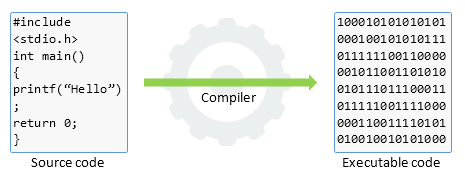
Project Overview
This project implements a simple compiler that reads arithmetic expressions from a file, such as first = 3; and total = first * second + first * second;. The compiler lexes the input, generates an abstract syntax tree, and produces bytecode instructions to execute the expressions.
Lexing and Parsing
The lexer identifies tokens including numbers, identifiers, operators, and delimiters. The parser builds a syntax tree from the token stream, supporting assignment statements, arithmetic operations, and sequences. This provides a foundation for translating the expressions into executable bytecode.
Code Generation
The compiler translates the syntax tree into bytecode instructions. Instructions include PUSH, READ, WRITE, ADD, SUB, MUL, DIV, and RET. Variables and numbers are handled appropriately, and sequences of expressions are compiled in order. The generated bytecode can then be interpreted or printed as assembly-like instructions.
Assembly Output
Using the included print_asm functionality, the bytecode can be displayed as readable assembly instructions, showing operations like reading variables, writing results, and performing arithmetic operations in a POP-based stack model.